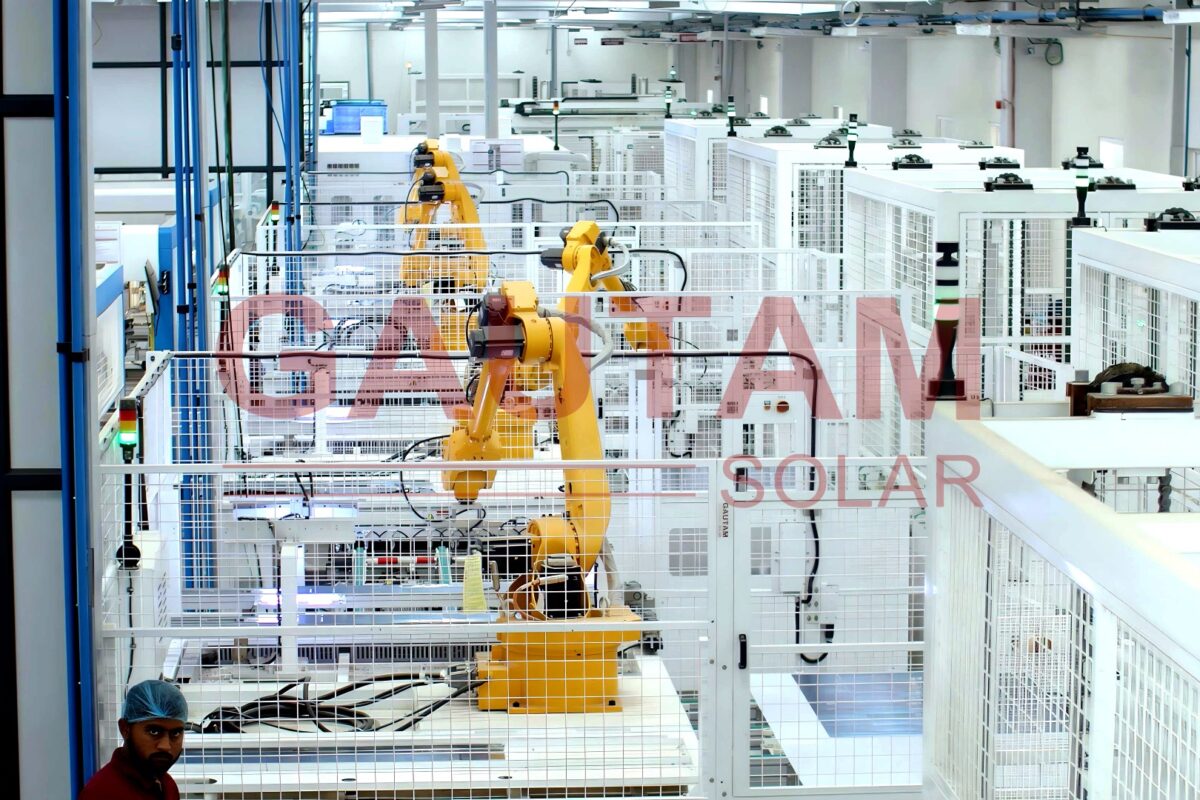Scientists from the government-run Center for Nano and Soft Matter Sciences (Cens) Bengaluru have developed a low-cost method of fabricating the transparent conducting glass (TCG) used for solar cells.
The researchers at the institute, part of the federal government Department of Science & Technology, claim their production method is 80% cheaper than the tin-doped, indium oxide (ITO) based technology currently in use. The glass also has the potential to bring down the production cost of devices such as smart windows and touch screens.
Tin-doped indium oxide coatings are costly because of the slow deposition rate involved in adding films just a few hundred nanometers deep.
The glass produced by the Bengaluru group features a metal mesh on a glass substrate with thin over-layers of metal oxides. The resulting hybrid electrode offers excellent conductive property thanks to the mesh – with sheet resistance of about 5 ohms/square – plus an oxide surface finish to satisfy industrial ITO-based requirements.
Production line
The Bengaluru team led by GU Kulkarni and industrial partner Hind High Vacuum have established a semi-automated, low-cost glass production plant funded by the Department of Science & Technology at the Cens campus.
Ashutosh K Singh, a scientist working on the project, said: “We are fabricating various prototypes such as transparent heaters, transparent electromagnetic interference shields and smart windows based on TCG, to showcase its potential applications. Further, these electrodes have been sent out for field tests in various industries and R&D laboratories.”
Samples of the low-cost glass devices are also available for on site testing and validation.
The Cens work has been published in the journal Materials Chemistry and Physics.
This content is protected by copyright and may not be reused. If you want to cooperate with us and would like to reuse some of our content, please contact: editors@pv-magazine.com.









By submitting this form you agree to pv magazine using your data for the purposes of publishing your comment.
Your personal data will only be disclosed or otherwise transmitted to third parties for the purposes of spam filtering or if this is necessary for technical maintenance of the website. Any other transfer to third parties will not take place unless this is justified on the basis of applicable data protection regulations or if pv magazine is legally obliged to do so.
You may revoke this consent at any time with effect for the future, in which case your personal data will be deleted immediately. Otherwise, your data will be deleted if pv magazine has processed your request or the purpose of data storage is fulfilled.
Further information on data privacy can be found in our Data Protection Policy.